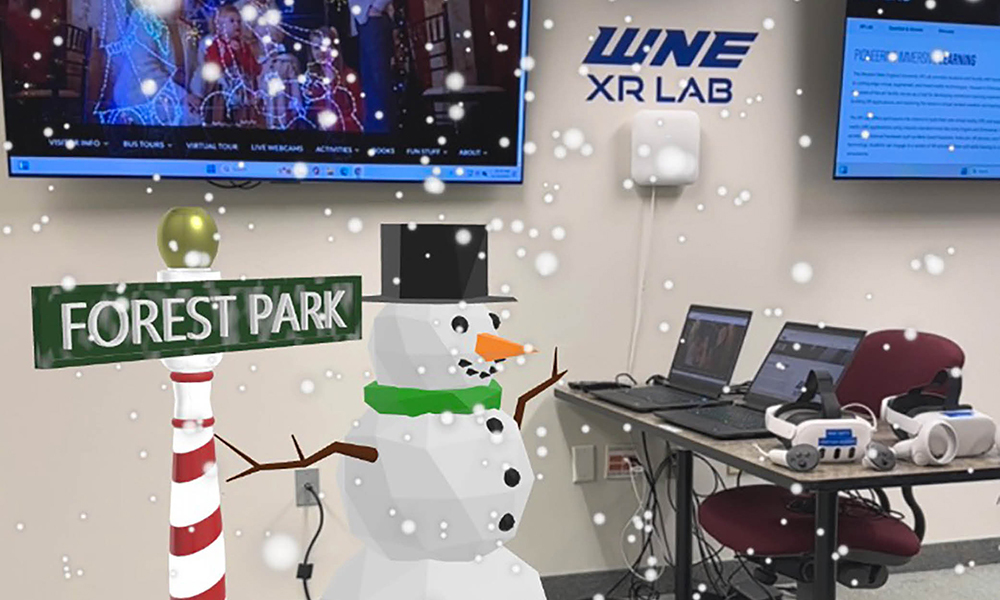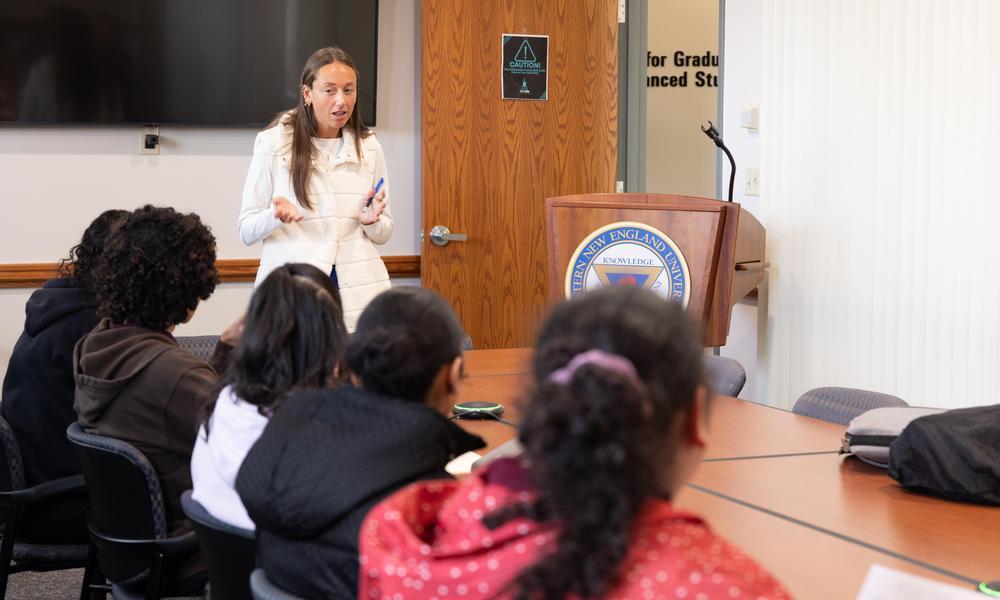Empowering the Next Generation
Become a licensed teacher in four years!
The WNE Education majors are designed to academically and dispositionally prepare students for entrance into the teaching profession. Through coursework assignments, microteaching, and field-based experiences connecting theory to practice in local K-12 schools, students develop and demonstrate their ability to successfully plan curriculum to meet the needs of all learners and effectively build and manage an equitable and inclusive learning community.
The Department of Education is designed around a shared core of learning theories and teaching strategies, implemented throughout the majors. Identifying a shared core allows us to offer consistent advising, teaching, and mentoring key to quality teacher preparation. The following shared theories and tools throughout ED coursework and field-based experiences in local classrooms support WNE graduates in meeting professional teaching standards, leading to successful school experiences and outcomes for all students:
![]() Universal Design for Learning (UDL) is a framework for designing accessible learning for all students grounded in neuroscience research. UDL is the shared framework we use for practicing and planning differentiated instruction.
Universal Design for Learning (UDL) is a framework for designing accessible learning for all students grounded in neuroscience research. UDL is the shared framework we use for practicing and planning differentiated instruction.
![]() Social Emotional Learning (SEL) using the CASEL framework. Research is clear that building relationships with students and helping students to build the skills to relate to others is vital for student success. We use the CASEL framework to ground SEL objectives and methodologies for lesson design and lesson analysis assignments.
Social Emotional Learning (SEL) using the CASEL framework. Research is clear that building relationships with students and helping students to build the skills to relate to others is vital for student success. We use the CASEL framework to ground SEL objectives and methodologies for lesson design and lesson analysis assignments.
![]() Culturally Sustaining Pedagogy (CSP) practices are introduced through the Principles for Constructive Engagement developed by Sensoy & DiAngelo. CSP practices are developed through in-class experiences designed to examine identity and biases, pragmatic readings, video analysis using CSP rubrics and criteria, and targeted field experiences.
Culturally Sustaining Pedagogy (CSP) practices are introduced through the Principles for Constructive Engagement developed by Sensoy & DiAngelo. CSP practices are developed through in-class experiences designed to examine identity and biases, pragmatic readings, video analysis using CSP rubrics and criteria, and targeted field experiences.
- Strive for intellectual humility.
- Recognize the difference between opinions and informed knowledge.
- Let go of personal anecdotal evidence and look at broader societal patterns.
- Notice your own defensive reactions and attempt to use these reactions as entry points for gaining deeper self-knowledge.
- Recognize how your own social positionality (such as your race, class, gender, sexuality, ability-status) informs your perspectives and reactions to your instructor and the individuals whose work your study in the course.
(Sensoy & DiAngelo, p. 31, 2017)
![]() Professional Teaching Standards, Frameworks & Organizations – Students delve into curriculum frameworks (e.g. MA, Common Core, NGSS…), and MA PSTs alongside current research in teaching and learning (ASCD, AERA…) to examine and apply the ‘what, why, and how’ of designing instruction and creating inclusive communities of learners.
Professional Teaching Standards, Frameworks & Organizations – Students delve into curriculum frameworks (e.g. MA, Common Core, NGSS…), and MA PSTs alongside current research in teaching and learning (ASCD, AERA…) to examine and apply the ‘what, why, and how’ of designing instruction and creating inclusive communities of learners.
![]() WNE Lesson Plan Template – Lesson plans are a key form of assessment where students demonstrate their ability to plan lessons capturing accuracy of content knowledge, use of assessment data for planning instruction, clarity of skill instruction through SEL, ELA and content learning objectives (required for all lessons), detailed methodology demonstrating implementation of UDL, culturally sustaining practices and other strategies (e.g. SIOP, cooperative learning…), and varied assessment strategies to collect evidence of individual students meeting stated learning objectives.
WNE Lesson Plan Template – Lesson plans are a key form of assessment where students demonstrate their ability to plan lessons capturing accuracy of content knowledge, use of assessment data for planning instruction, clarity of skill instruction through SEL, ELA and content learning objectives (required for all lessons), detailed methodology demonstrating implementation of UDL, culturally sustaining practices and other strategies (e.g. SIOP, cooperative learning…), and varied assessment strategies to collect evidence of individual students meeting stated learning objectives.





